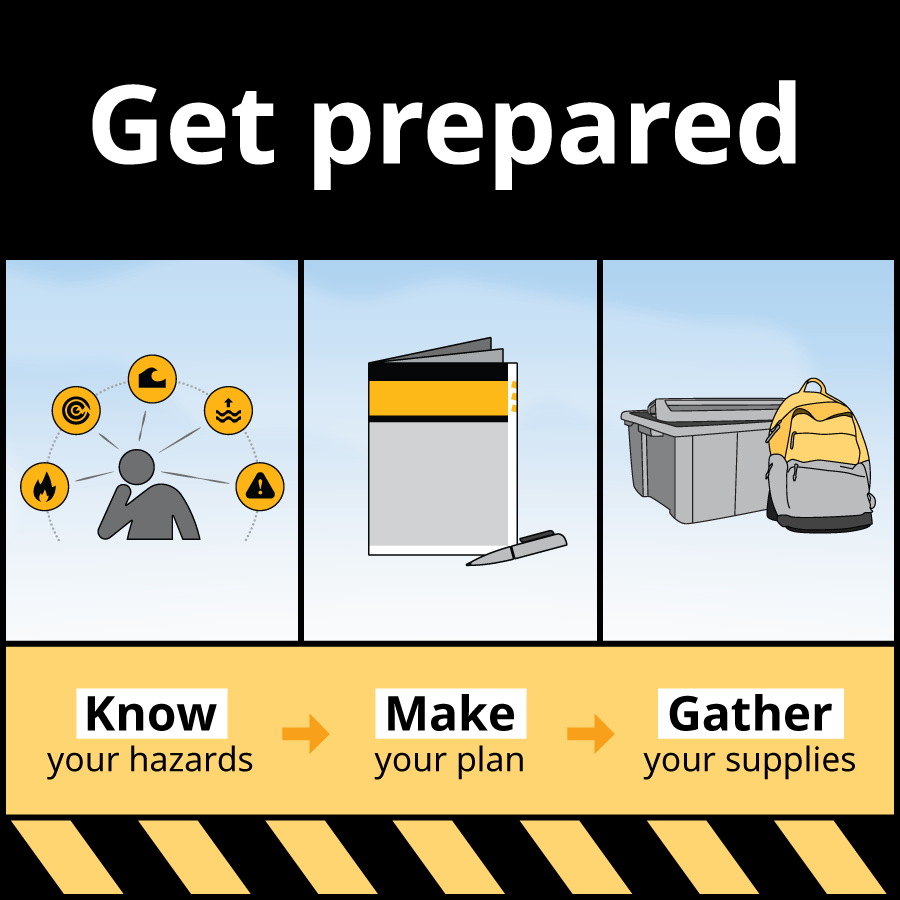During an emergency, you and your family could be on your own for an extended period of time. Emergency services may not be readily available, as increasing demands are placed on responders. It may take emergency workers some time to get to you as they help those in most critical need. Be prepared to cope on your own for at least seven days in an emergency.
During an evacuation order, specific facilities will be designated as receptions centres for evacuees requiring assistance. Public information will include the location of the nearest reception centre and further instructions for registering for Emergency Support Services once the location and nature of the emergency has been identified.
